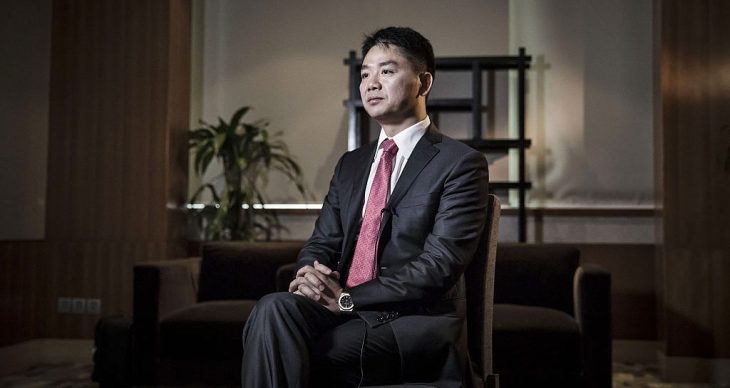One of the highest-profile sexual assault allegations against Chinese business tycoons ended abruptly this past weekend. Liu Qiangdong (also known as Richard Liu), the founder of Chinese e-commerce giant JD.com, has reached a settlement with Liu Jingyao, a former University of Minnesota student who alleged that the billionaire raped her in her apartment in 2018.
The announcement came in a joint statement from the two parties on Saturday, just two days before Mr. Liu was scheduled to face a civil trial in Minneapolis, during which the press would have been allowed to live tweet from the courtroom. The amount for the settlement wasn’t disclosed.
The joint statement neither denied nor confirmed Ms. Liu’s claims, saying only that the incident between Mr. Liu and Ms. Liu (unrelated) “resulted in a misunderstanding that has consumed substantial public attention and brought profound suffering to the parties and their families.”
“Today, the parties agreed to set aside their differences, and settle their legal dispute in order to avoid further pain and suffering caused by the lawsuit.”
Some might see the result as yet another instance where powerful figures get to shun legal ramifications using their power and money. But others argue this is already a step forward for China’s beleaguered #MeToo movement. Mr. Liu has previously denied the rape allegations and could have used his financial prowess to defend his purported innocence through the trial. A settlement instead might suggest his silent admission of wrongdoings.
“It’s such a historic moment for the past four-year #Metoo movement in China, as the settlement remains significant for the results of struggle by Jingyao and feminists,” reads a blog post by the Free Chinese Feminist group. “The settlement also reconfirms the facts that have been denied by Liu Qiangdong and JD.com, and recognizes that Liu Qiangdong kept hiding the truth.”
The case has drawn widespread attention in China and many were waiting for the trial to uncover more details of the case against one of China’s wealthiest men, a scenario that would have been nearly impossible in China where sexual allegations have historically been silenced.
Online discussions about the #MeToo case at least seem to be allowed. On the microblogging platform Weibo, the hashtag for the settlement news has accumulated over 40 million views. That’s perhaps unsurprising, given that Chinese censors are unlikely to side with an e-commerce boss at a time Beijing is reining in the unfettered power of the internet sector.
Mr. Liu, whose blunt speeches and marriage to an internet celebrity was often the topic of tabloid news, has largely retreated from public life since the case surfaced. In April, the 49-year-old executive stepped down as JD.com’s CEO after founding the online retailer, which is hailed as the Amazon of China, some 24 years ago. He remains the chairman of the firm’s board.
The four-year legal entanglement didn’t seem to wane investor confidence in JD.com. The company’s stock price has nearly doubled to $50 apiece from September 2018 when Mr. Liu first faced the sexual misconduct allegations, though the shares are still down 50% from a high point in February 2021. With a market cap of around $77 billion, JD.com is the 20th biggest company in China at the time of writing.
JD.com hasn’t fared too badly amid China’s tech clampdown overall. Most of the country’s internet giants have lost a substantial chunk of their market cap following a litany of regulations over monopolies, data practices and more. Alibaba’s stock has shrunk 70% from a high in October 2020 and Tencent’s is down 66% from its peak in February 2021.
